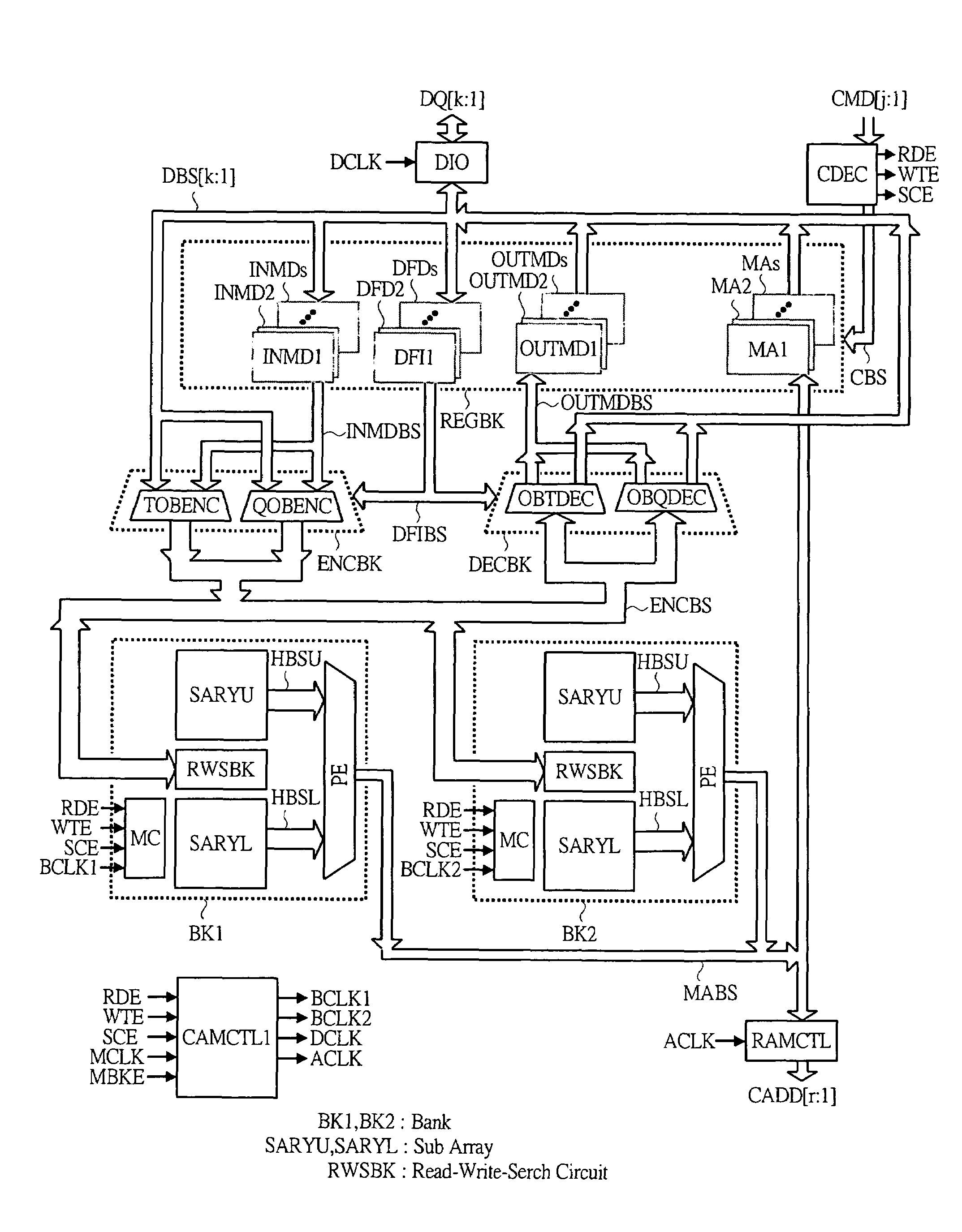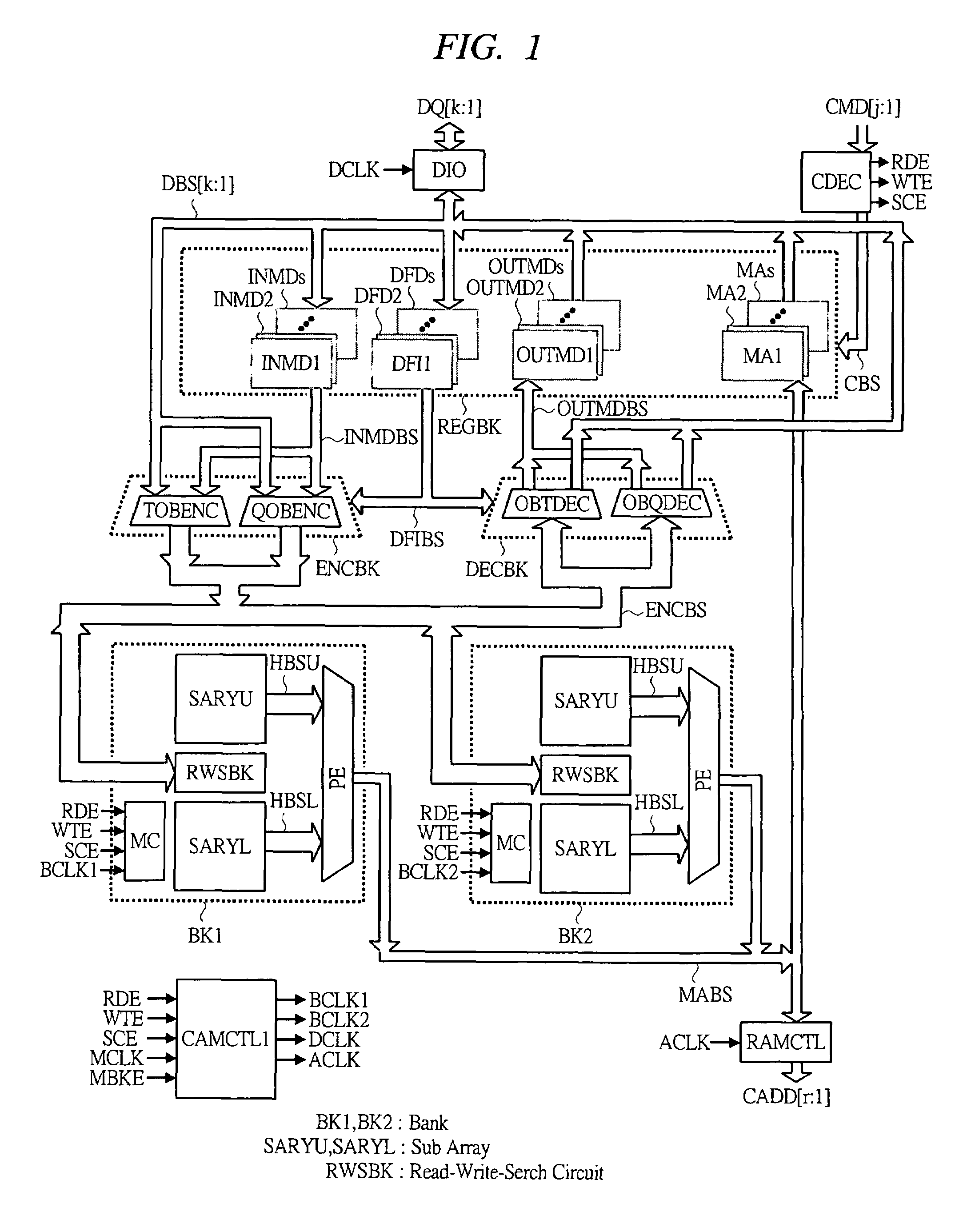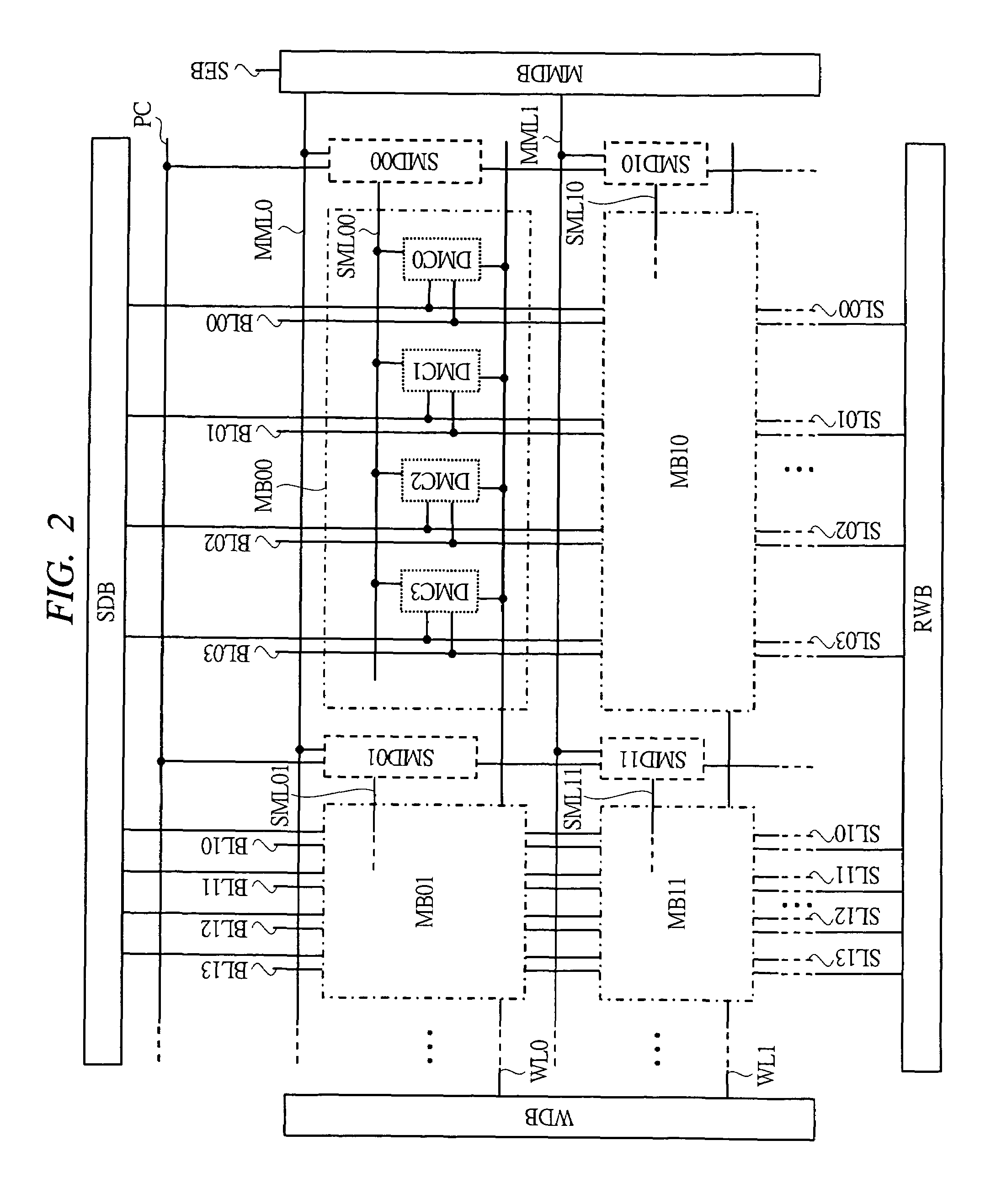Semiconductor device
a technology of semiconductor devices and memory arrays, applied in the field of semiconductor devices, can solve the problems of increasing packaging costs, unable to accurately read or write to storage nodes of two dynamic storage cells, and the degree of shortening of the search time in the search operation of a memory array, which is the heart of the cam, so as to achieve speed-up and reduce power consumption.
- Summary
- Abstract
- Description
- Claims
- Application Information
AI Technical Summary
Benefits of technology
Problems solved by technology
Method used
Image
Examples
first embodiment
[0049]First, the entire structure of a CAM will be described.
[0050]FIG. 1 is a block diagram showing an example of a basic structure of principal blocks of a CAM included in the semiconductor device according to the first embodiment of the present invention. This structure includes a command decoder CDEC, a CAM control circuit CAMCTL1, a data I / O circuit DIO, various register blocks REGBK, an encoder block ENCBK, a decoder block DECBK, banked memory arrays BK1 and BK2, and a RAM control circuit RAMCTL. In FIG. 1, attention is placed on the path in which the data in search operation is transmitted and received, and a refresh counter, a low decoder, and others which are address-related circuit blocks are omitted for simplicity.
[0051]The command decoder CDEC receives and encodes command signals CMD [j:1] and outputs signals for selecting a register described later to various register blocks REGBK via a command bus CBS. Alternatively, it outputs a read enable signal RDE, a write enable ...
second embodiment
[0104]In the second embodiment, another example of the structure and the operation of the CAM described in the first embodiment will be described.
[0105]FIG. 8 is a block diagram showing an example of the basic structure of principal blocks of the CAM included in a semiconductor device according to the second embodiment of the present invention. The features of this structure lie in that banked memory arrays form a hierarchical structure, and the search operation of search keys wider than the bus width of the data bus DQ is performed by using a memory array structure which has two main banks composed of multiple banks. In the following description, the structure of FIG. 8 will be described while focusing on the points different from the structure shown in FIG. 1.
[0106]A CAM control circuit CAMCTL8 receives a master clock MCLK and a multi bank enable signal MBKE generated by a controller (or a control circuit called network processor or search engine, etc.) connected to the CAM accord...
third embodiment
[0130]In the third embodiment, another example of the structure and the operation of the sub-array used in the CAM described in the first and second embodiments will be described. FIG. 11 is a circuit block diagram showing an example of a memory array structure different from that of FIG. 2 in the CAM included in a semiconductor device according to the third embodiment of the present invention. In the following description, the structure of FIG. 11 will be described while focusing on the points different from the memory array structure shown in FIG. 2.
[0131]The features of the memory array structure shown in FIG. 11 lie in that, in addition to normal memory blocks shown in FIG. 2 and FIG. 3, dummy memory blocks MBD0, MBD1, . . . with the same structure are further disposed on a dummy word line WLD to generate the sense amplifier start timing. Between dummy sub-match lines SMLD0, SMLD1, . . . and a dummy main match line MMLD in the dummy memory blocks MBD0, MBD1, . . . , correspondin...
PUM
 Login to View More
Login to View More Abstract
Description
Claims
Application Information
 Login to View More
Login to View More - R&D
- Intellectual Property
- Life Sciences
- Materials
- Tech Scout
- Unparalleled Data Quality
- Higher Quality Content
- 60% Fewer Hallucinations
Browse by: Latest US Patents, China's latest patents, Technical Efficacy Thesaurus, Application Domain, Technology Topic, Popular Technical Reports.
© 2025 PatSnap. All rights reserved.Legal|Privacy policy|Modern Slavery Act Transparency Statement|Sitemap|About US| Contact US: help@patsnap.com



